Columbia Engineering Students Win 1st Place in NeurIPS Minecraft Challenge
Team leader David Watkins discusses how playing computer games can give roboticists real-world insights.
Team leader David Watkins discusses how playing computer games can give roboticists real-world insights.
Molecular biologist, pianist, and cognitive scientist/biologist will receive scholarship aid from a program that supports students from non-computational backgrounds applying computer science in a broad range of interdisciplinary areas.
Hamoon Mousavi is a PhD student who moved to Columbia from the University of Toronto last year with Henry Yuen, whose research group studies theoretical computer science and the differences between classical and quantum computers.
When it comes to deploying her computer science skills, Camille-Louise Mbayo MS’22 is already looking far beyond the halls of academia.
Two Columbia engineers behind fashion app Upcomers on creating a marketplace to showcase Black-owned brands and five new designers everyone should know.
The CS@CU MS Bridge Program in Computer Science equips students from non-computer science backgrounds with the skills and knowledge necessary to build careers in technology.
The program is designed as a year of rigorous “bridge” coursework composed of introductory CS courses. This transition prepares students for a seamless entrance into Columbia Engineering’s MS program in Computer Science after the bridge year.
The program was launched in 2020 and the second cohort is currently in their bridge year. We asked these new students what their favorite class is so far.
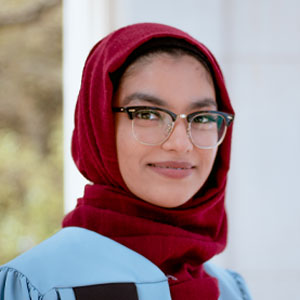
Aneeza Asif
BA Cell and Molecular Biology, Barnard College (’21)
Through the few classes I have taken so far, COMS W1004, Intro to Computer Science has been my favorite. Professor Paul Blaer is such an amazing instructor, he truly takes time out to ensure students understand the material with the way he structures his lectures as well as his teaching style where he will pause to take questions in between different concepts. Professor Blaer offered Java Labs, which was a supplemental option to the main course, run by TA’s to help students better understand concepts taught in class. I am so appreciative of Java Labs and all the TA’s that helped me throughout the semester, as this was my first encounter with coding and it made for a great first experience.
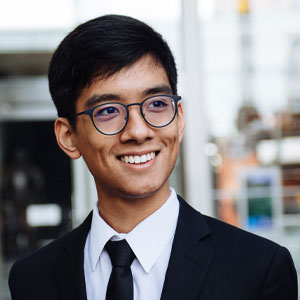
Ryan Soeyadi
BM Piano Performance, The Juilliard School (’21)
My favorite class so far is Data Structures, mainly because I’ve reached a point where I’m comfortable programming in Java and I felt like I was able to translate my thoughts to code more easily in that class. I learned numerous ways to organize and manipulate data. I also learned how useful it is to draw diagrams with a pen and paper rather than jump to code from the beginning, a mistake beginners like me often make.
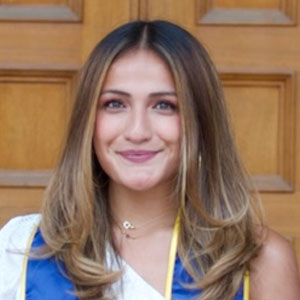
Madison Thantu
BS Cognitive Science, and Human Biology and Society, University of California, Los Angeles (’21)
Although only a few weeks into the spring semester, I am currently taking my first course in the master’s program, Artificial Intelligence, which, although challenging, I am very excited about and interested in. This course is synthesizing the information that I have learned in previous computer science and math courses and, for me, it has confirmed that I want to pursue the Machine Learning track once I officially enter the master’s program.
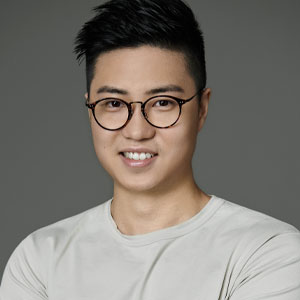
Jacky Wong
BA Economics, New York University (’17)
I enrolled in the MS Bridge program so that I can become a software engineer and build software to solve day-to-day problems. And it has been going well! I really like my Artificial Intelligence class. I have learned how to think computationally – how to model a question into a coding problem and how to turn an algorithm into code.
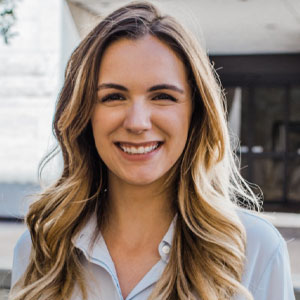
Jordan Jolley
BBA Management Information Systems, University of Texas, Austin (’18)
So far, my favorite course has been Artificial Intelligence. We not only learn general AI theories and history but also how to develop different algorithms in order to create a rational agent. Although I am not currently planning on pursuing a career in AI, I have found the class both challenging and enjoy broadening my scope of CS experiences.
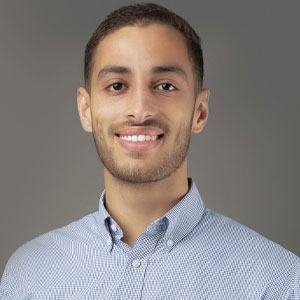
Basel Hindi
BS Mechanical Engineering, Texas A&M University (’18)
I am currently enrolled in COMS 4701- Artificial Intelligence, and it is quickly proving to be my favorite class thus far. We are learning about rational agents and the axioms that govern them. I feel that the CS@CU MS Bridge program offers a tailor-made and well-structured transition into the world of graduate-level Computer Science. I believe this transition is critical in order to first hone my knowledge of CS and then apply those skill sets to solve interdisciplinary problems, which are increasingly present within the complexity of the real world.
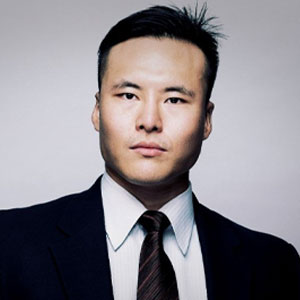
Sean Jung
BA Nutrition Science, Georgia State University (’19)
MS Business Analytics, Emory University (’21)
I think Data Structures is one of the most important classes in the whole CS undergraduate curriculum. We are learning about different data structures such as ArrayList, LinkedList, Stacks, Queues, Hash Tables, etc, and then combining them with a set of algorithms to solve the problem in a creative and efficient way. This class has been my favorite since it is like a puzzle where I get a sense of achievement when I finally get to solve it.
Amey Pasarkar has been selected as a Finalist for his work on computational models that examine the microbiome and its role in health and disease.
Directional Gaussian Mixture Models of the Gut Microbiome Elucidate Microbial Spatial Structure
Amey P. Pasarkar, Tyler A. Joseph, Itsik Pe’er
The human gut microbiome contains trillions of bacteria that play a key role in preventing and fighting disease. However, the behaviors of these bacteria are still not well understood. One of these behaviors is the spatial arrangement of microbes in the gut. Numerous experimental studies have hinted that the various unique environments along the gut lead to certain bacterial spatial patterns. The research team created a consolidated computational model of the microbiome’s spatial arrangement. Their model can identify many of the previously discovered patterns and propose new ones as well. For example, the models found that the pH levels in the small intestine are likely promoting the growth of a specific family of bacteria.
The results demonstrate that the gut microbiome, while exceptionally large, has predictable and quantifiable spatial patterns that can be used to help us understand its role in health and disease.
The computer science community lost Davide Giri on December 2, 2021. For the past seven years, he worked in the Systems-Level Design Group under the guidance of Professor Luca Carloni. Friends and colleagues share their thoughts and memories of Davide.
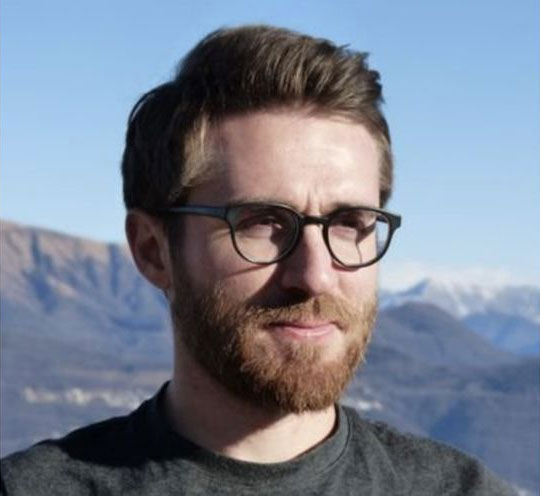
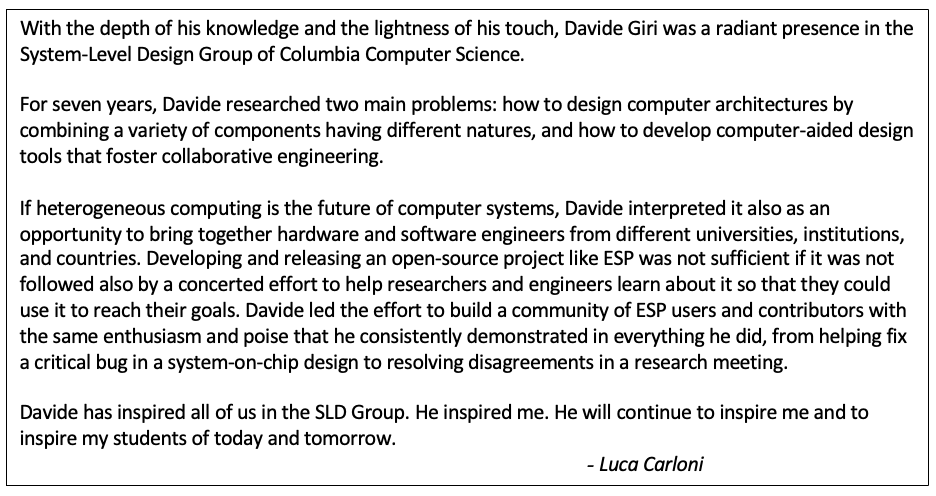
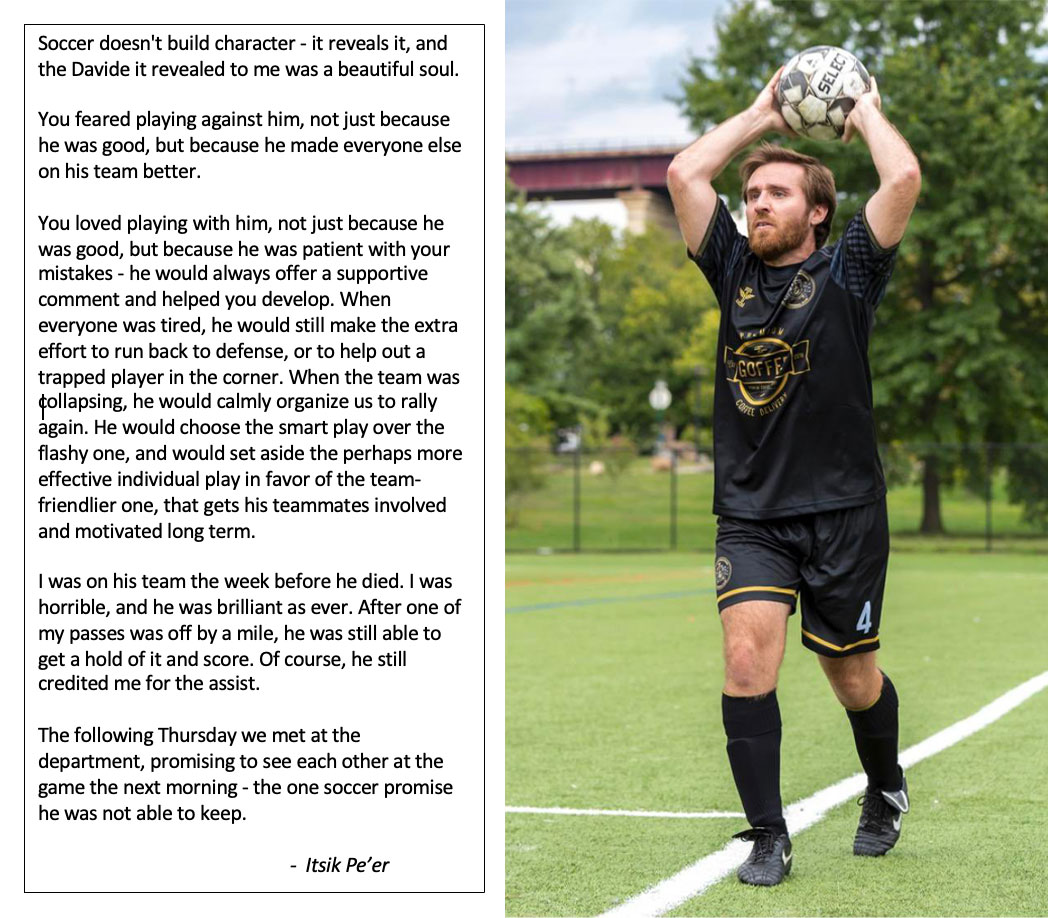
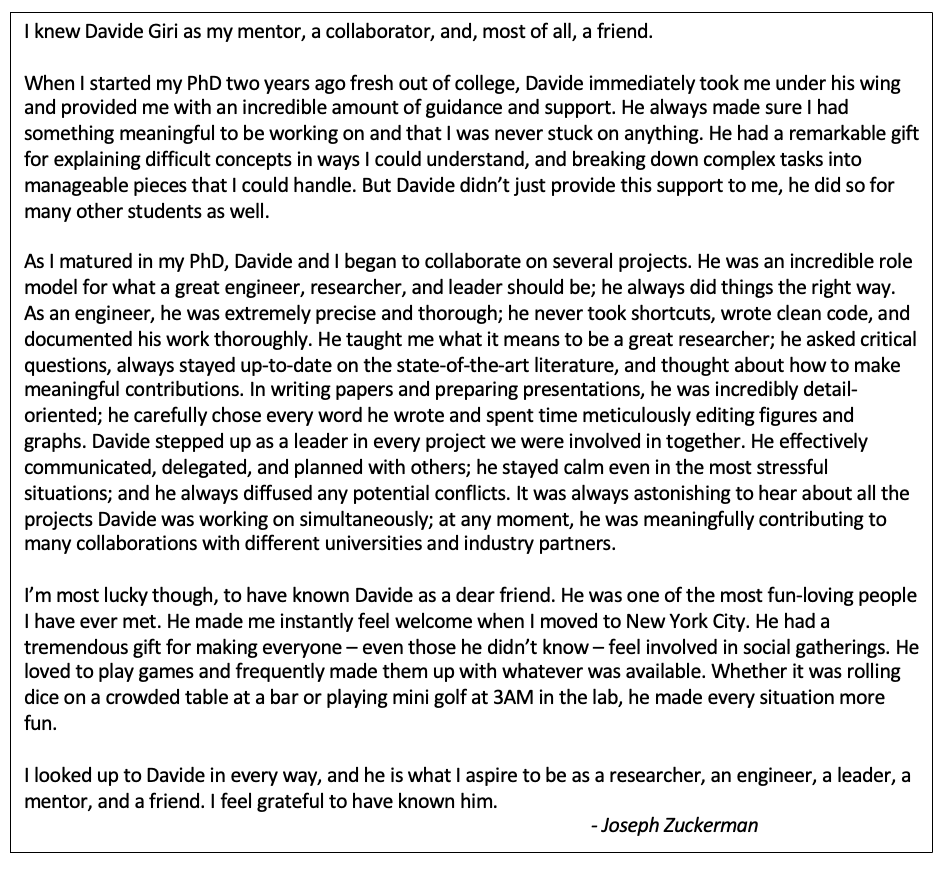
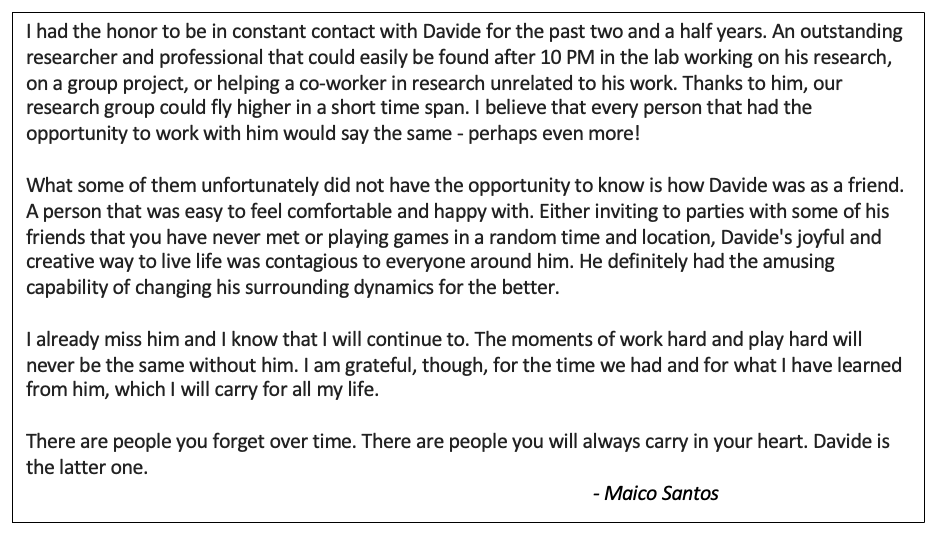
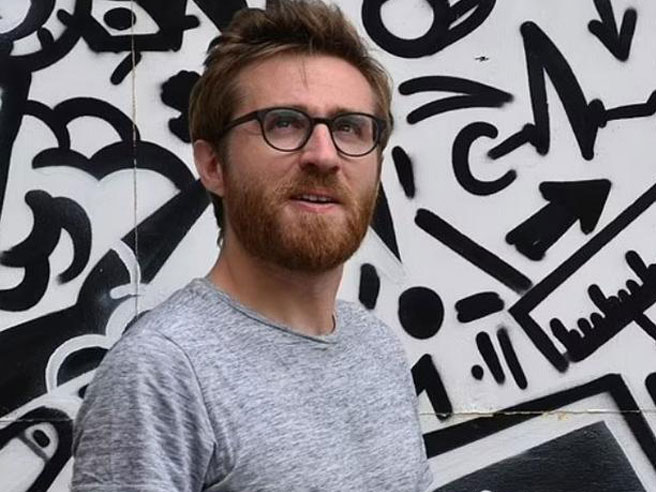
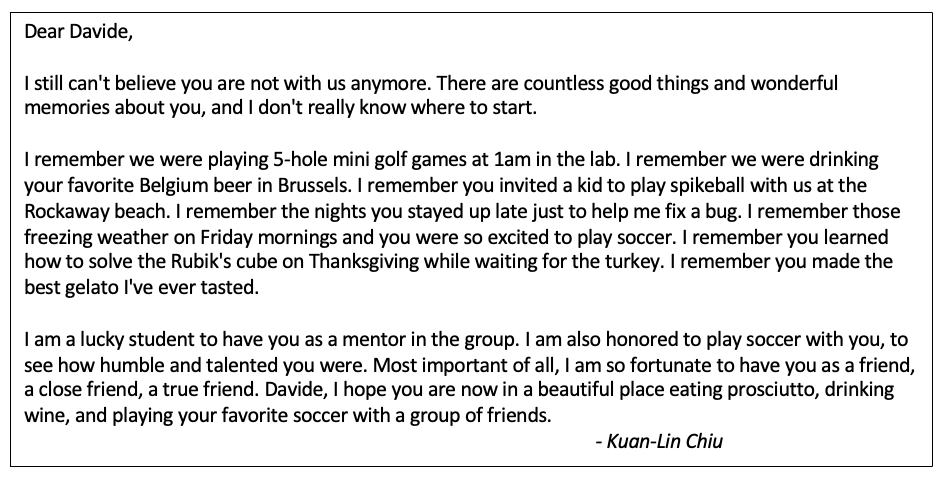
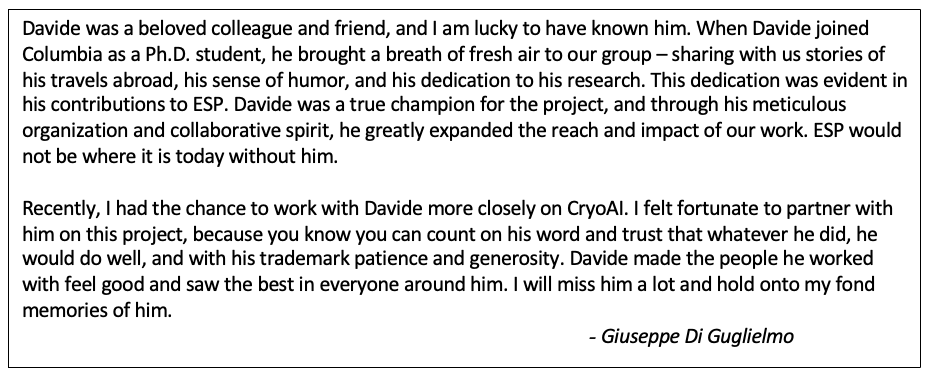
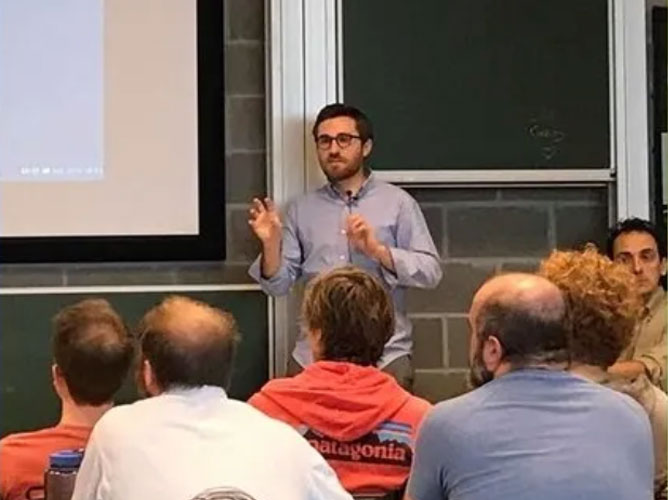
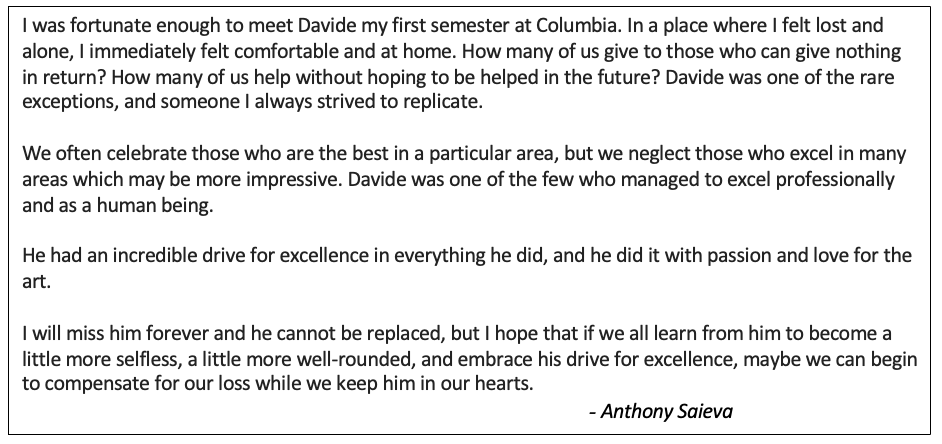
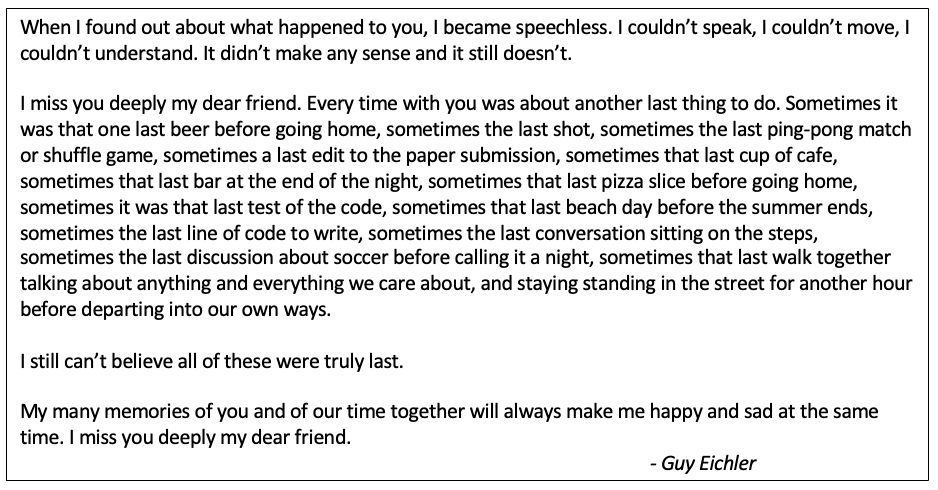
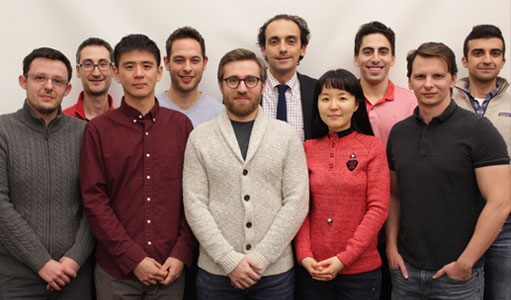
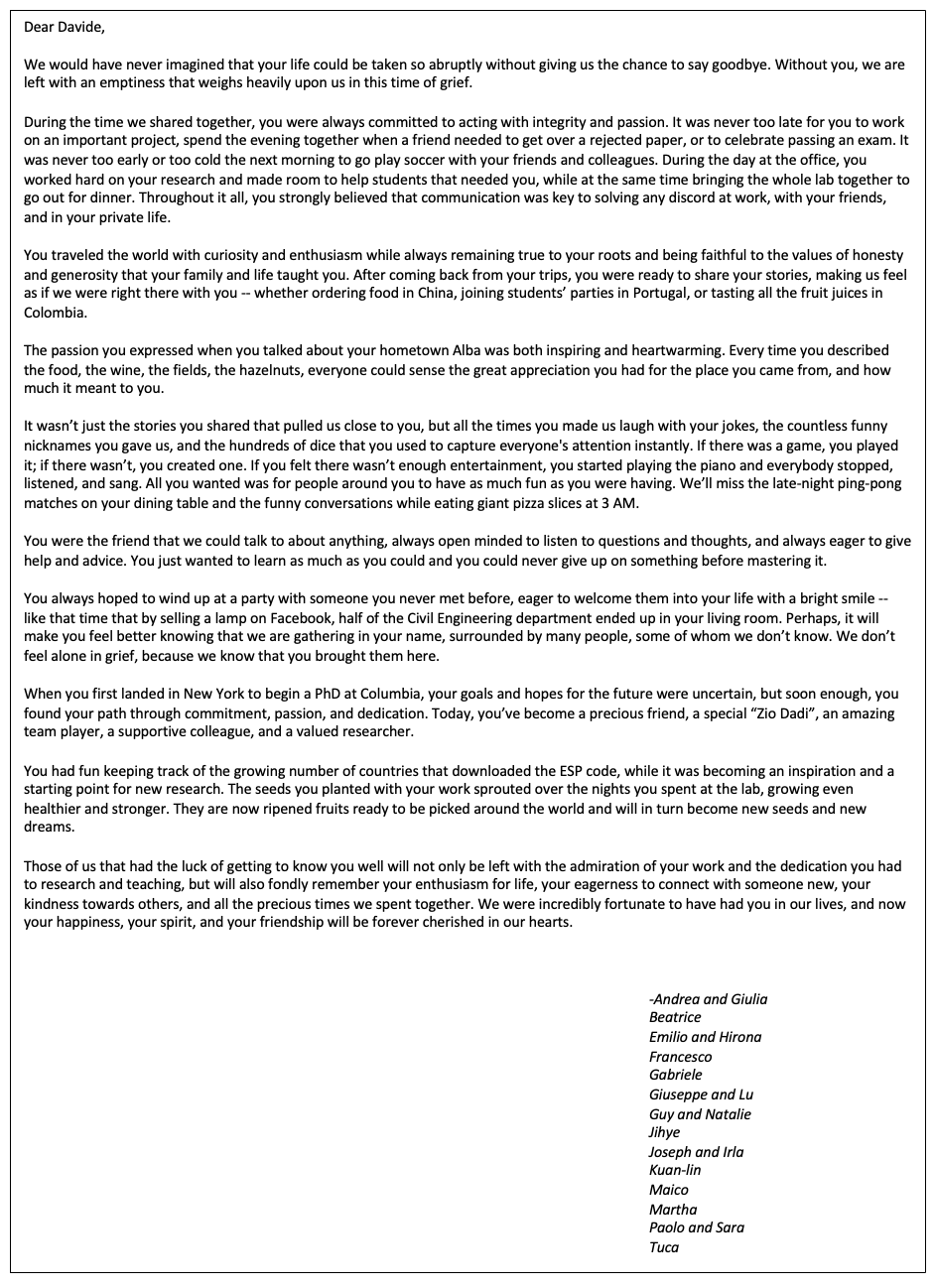
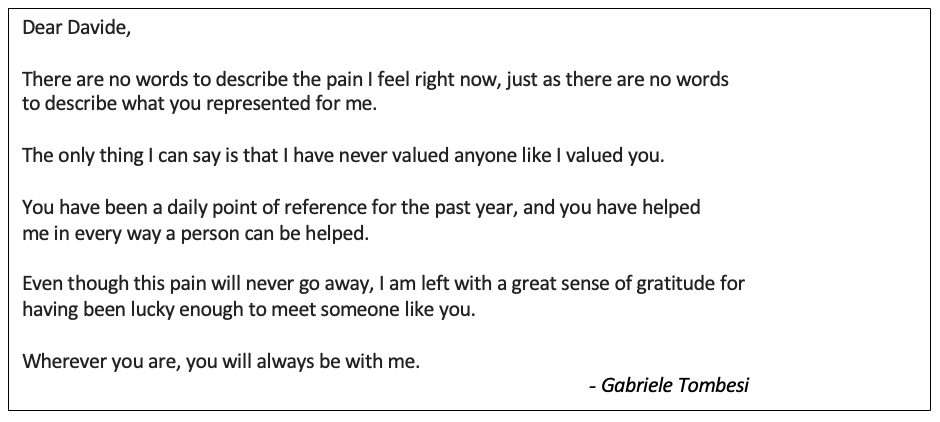
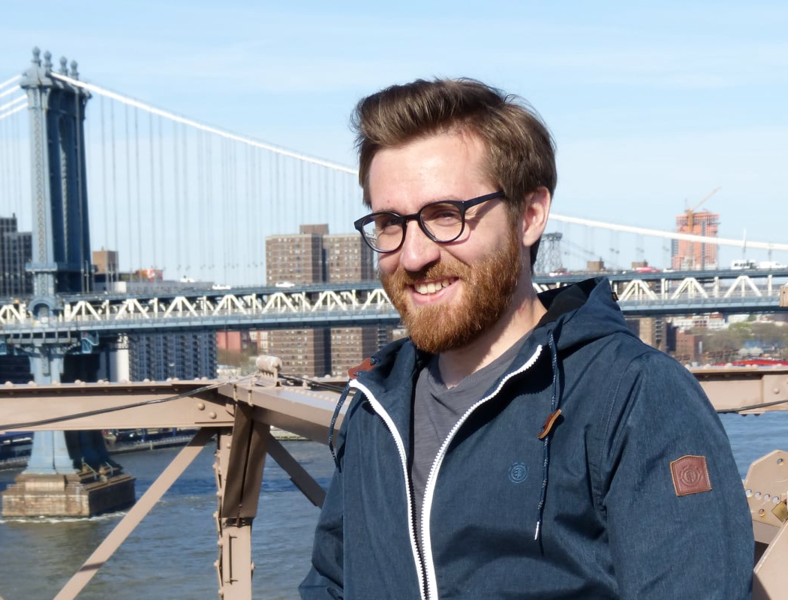
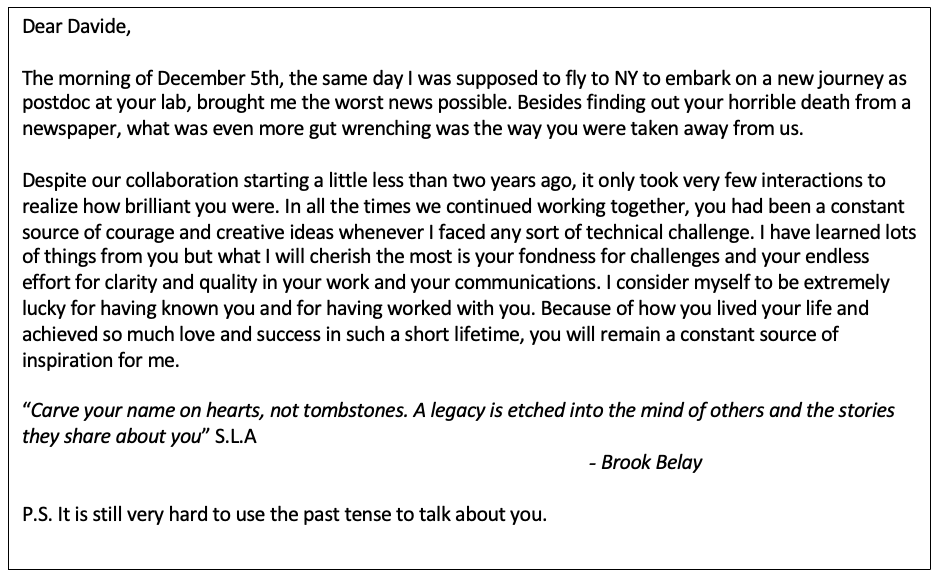
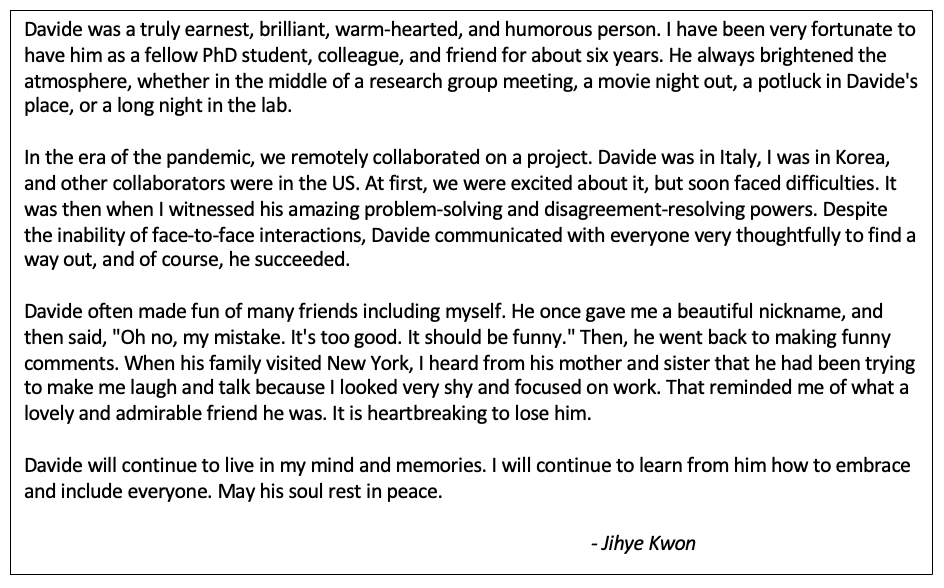
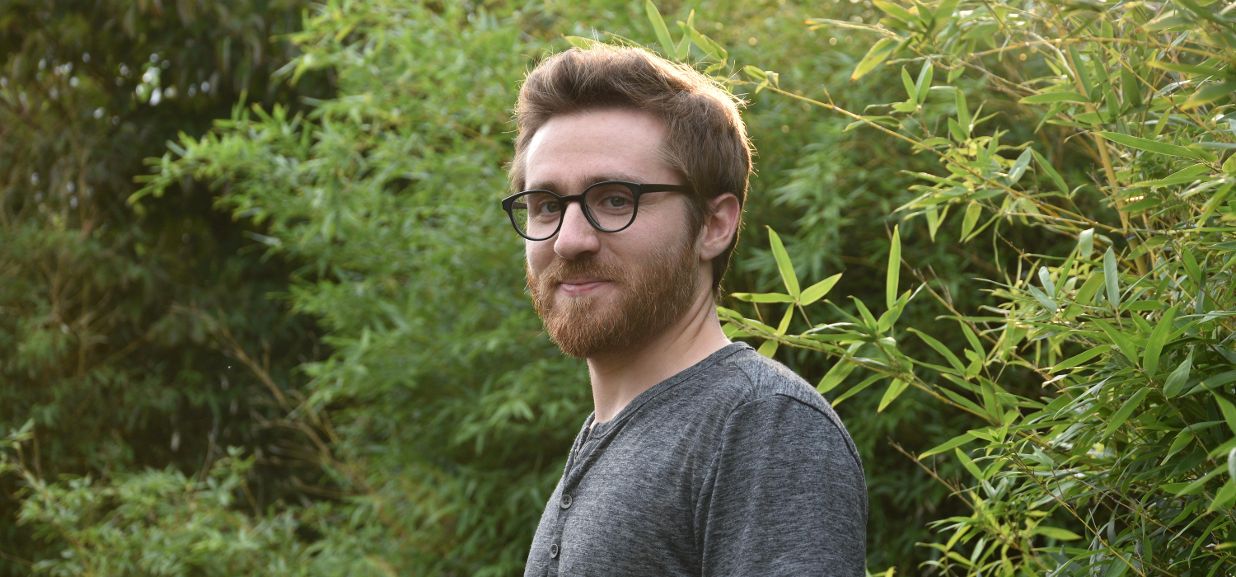
Find open faculty positions here.
President Bollinger announced that Columbia University along with many other academic institutions (sixteen, including all Ivy League universities) filed an amicus brief in the U.S. District Court for the Eastern District of New York challenging the Executive Order regarding immigrants from seven designated countries and refugees. Among other things, the brief asserts that “safety and security concerns can be addressed in a manner that is consistent with the values America has always stood for, including the free flow of ideas and people across borders and the welcoming of immigrants to our universities.”
This recent action provides a moment for us to collectively reflect on our community within Columbia Engineering and the importance of our commitment to maintaining an open and welcoming community for all students, faculty, researchers and administrative staff. As a School of Engineering and Applied Science, we are fortunate to attract students and faculty from diverse backgrounds, from across the country, and from around the world. It is a great benefit to be able to gather engineers and scientists of so many different perspectives and talents – all with a commitment to learning, a focus on pushing the frontiers of knowledge and discovery, and with a passion for translating our work to impact humanity.
I am proud of our community, and wish to take this opportunity to reinforce our collective commitment to maintaining an open and collegial environment. We are fortunate to have the privilege to learn from one another, and to study, work, and live together in such a dynamic and vibrant place as Columbia.
Sincerely,
Mary C. Boyce
Dean of Engineering
Morris A. and Alma Schapiro Professor